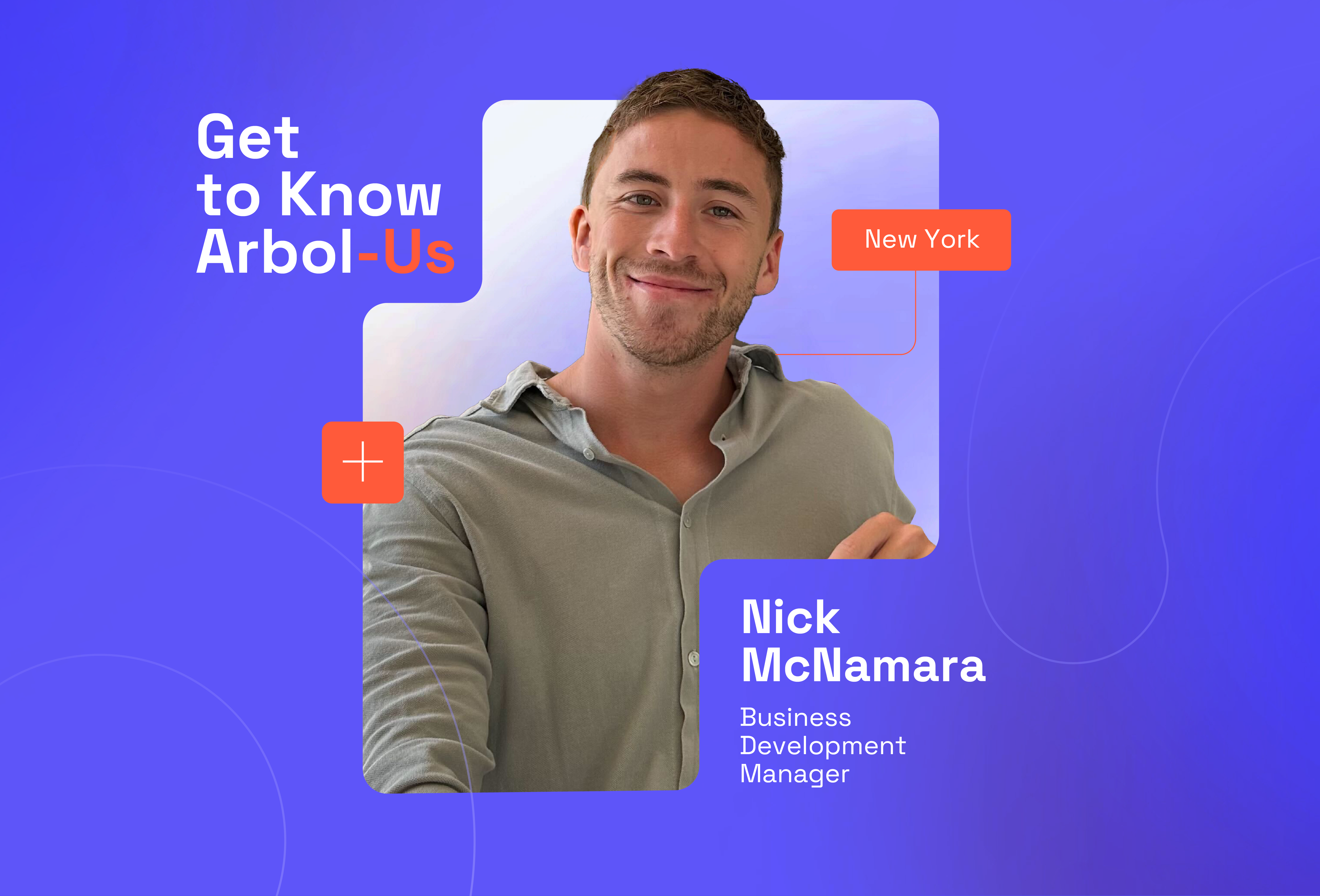Audience questions from our recent webinar answered by our experts through ArbolusCanopy.
During our recent webinar "Generative AI Unpacked: Navigating the Hype for Businesses and Investors" we received a lot of very interesting questions from our audience. Unfortunately, our panelists didn’t have enough time to answer them all, so we asked seven experienced AI experts in our network to share their opinion and answer those questions using ArbolusCanopy.
To listen to all answers or read full transcripts of each question, get in touch with us.
How do you envisage that AI will impact search engines?
The experts agree that AI will have a significant impact on search engines. They believe that AI will improve the personalization of search results, making them more relevant to the user's context and history. AI will also enhance natural language processing, making it easier for users to find what they are looking for. Additionally, AI will improve image and video search, making it easier for users to find specific media.
The respondents do not believe that AI will reduce the number of searches, but rather make them more intelligent and efficient. However, there are concerns about privacy and security, and the need for a trusted name in search engines. Overall, AI will disrupt the search engine industry and force companies to adapt to the new technology.
"They will definitely force search engines to change and adopt some of the technologies that the generative AI has offered." - AI Customer Success
“It's clear that with Sydney and Bard, it was the initial first attempt for Google and Microsoft to get in that game, or Bing, I should say. But obviously, people aren't ready for all this craziness that's about to happen.” - AI & Metaverse Consultant

How do you view the path forward in terms of deployment of LLMs (and other genAI models) going forward in 3rd party products?
The deployment of LLMs in third-party products will likely rely on APIs to access the intelligence of large language models. However, it is important to consider potential risks and benefits, such as bias and misinformation, and to approach the use of LLMs with consideration of ethics. It may be more efficient for companies to outsource the expertise and proficiency of LLMs to models that are continuously improving rather than building it themselves in-house. The use of specific industry-based APIs may also be useful for custom models specific to the problem being resolved.
Overall, the path forward will likely involve a combination of technical solutions, policy and governance frameworks, and a focus on specific use cases.
"It's likely to involve a combination of technical solutions, maybe improved methods of detecting and mitigating bias, as well as policy and government frameworks” - Senior Generative AI Advisor
So many companies who do not have the development resources will just use these large models via API and that will save them time and they'll be able to try out different options." - AI Customer Success
How can one sample test or “play” with AI on a small scale?
The experts suggest several ways to sample-test AI on a small scale before moving forward with meetings and estimates. One way is to use off-the-shelf APIs or models that can be accessed through a UI to validate the idea. Another way is to create a wireframe mockup of the AI process and test it with sample coding before presenting it to stakeholders. Additionally, attending online courses, building a small AI project, and networking with other developers in the AI space are recommended. It is also important to test the AI with a smaller dataset and perform manual testing before synthetically generating data at scale. Finally, it is crucial to ensure that the required infrastructure or computer capacity is available before deploying the models.
"I would begin by making a simple wireframe mockup of the whole AI process and what the outcome, the desired outcome would be, and see if you can do any little sample coding to tie together this outcome before presenting it to a stakeholder."
- Digital Asset Designer
“The best thing is to play with the off-the-shelf APIs that are available or models that you can access through some sort of a UI and focus more on the use case and prompts and things that allow you to validate your idea.” - AI Customer Success
How important do you believe that data quality and quantity are in the success of generative AI implementations?
Data quality and quantity are crucial for the success of generative AI implementations. The quality of the data needs to be top-tier, up-to-date, and relevant. If the data has inaccuracies or biases, it will lead to inaccurate output. The quantity of data is also important because it affects a model's ability to learn and generalize. More data leads to a more robust performance by the model.
Strategies to overcome these challenges include sourcing clean data, using synthetic data, and manual curation to improve the quality. It is also important to incorporate a diversity of perspectives and viewpoints to avoid biases. Too much data can also be a problem, so it is essential to specialize it to meet the company's needs.
"Both the data quantity and quality are really important for generative AI because the whole idea of pre-training is to provide enough data that the model can learn the distribution of the data." - AI Customer Success at IBM
How can companies in slower-moving industries catch up with early adopters in leveraging generative AI for business benefits?
Experts suggest that companies in slower-moving industries can catch up with early adopters by partnering with AI-focused startups, building an in-house AI expertise group, and being open-minded to the potential benefits of AI. They recommend focusing on real business problems, developing the right data infrastructure, and investing in talent to identify problems and validate models.
Additionally, experts suggest that it only takes one company in an industry to disrupt and show what's possible, leading to a proving ground for other companies to follow. While slower-moving industries may be hesitant to adopt AI, experts believe that eventually, everyone will be using it, and it's just a question of when and how.
"I think whether you are an early adopter of the problem or you are late in the game, either way, you need to focus on what is a real problem which we're trying to solve” - Director, Growth Strategy and Global Transformation
“It's really going to take innovators...specific companies within those industries to show what's possible” - AI/Metaverse Consultant
How do you foresee the regulatory landscape evolving for generative AI?
The experts agree that the regulatory landscape for generative AI is still in its early stages and will require significant involvement from regulatory bodies. They predict that there will be industry-specific regulations around privacy, intellectual property, and accountability. The experts also suggest that businesses and investors should be proactive and strategic in their planning and invest in ethical AI solutions. However, they note that the regulatory landscape will be challenging and changing, and it may take time for regulations to be developed and implemented. Overall, the experts agree that the regulatory landscape for generative AI will be a significant market and that businesses should consider compliance with regulations in their respective industries.
"I think it's just a matter of time before there could be some sort of a regulation framework that will develop...But without that, it's going to be very chaotic.” - AI Customer Success
“I think there's gonna be a lot of ethical guidelines...around bias, transparency, accountability, as well as using AI to produce misleading content." - Senior Generative AI Advisor
If you’d like to see all expert insights on this topic - get in touch with us.




